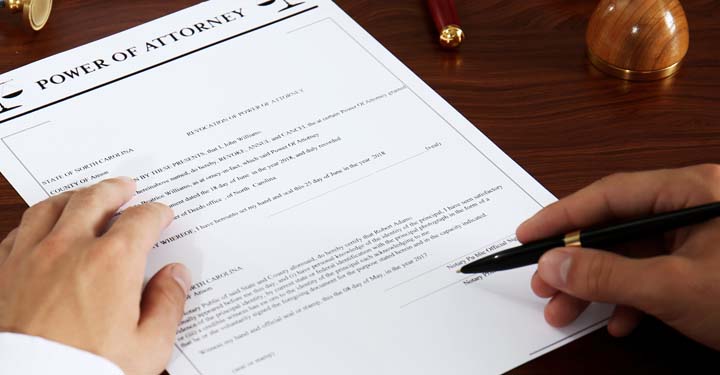There are three different powers of attorney: non-durable, springing and durable. A non-durable power of attorney becomes effective immediately upon execution by the person. It remains active until it is either terminated or revoked by the person themselves, the person becomes mentally incapacitated or if the person dies.
Without a durable power of attorney, helping a family member or loved one who cannot act on their own becomes far more difficult and stressful. Powers of attorney, also known as POA, typically give the agent specific powers to conduct the person’s financial business, explains the Aiken Standard in the article “The durable power of attorney.” There’s also a healthcare POA, which gives the named person the authority to make medical decisions, usually when the person is not able to do so because of illness or injury.
The durable power of attorney is in effect from the moment it is executed. It is not revoked if the person becomes incapacitated (hence the term “durable”), nor by the passage of time. The person can alter or terminate a durable power of attorney at any time before there is physical or mental incapacity, however, and it does end when the person dies.
Springing powers of attorney become effective at a future date. They “spring” into power, according to the terms of the document. That may be the occurrence of a particular event, like the person becoming incapacitated or disabled. They can be problematic, as there will be a need to prove that the person has become incapacitated and/or disabled.
The advantage of the durable power of attorney is that it remains in effect even after the person has become impaired. The agent has the ability to act right away. If time is of the essence (i.e., there is an emergency that requires quick action), there is no need to go to court to have the approval to act.
For many people, having a durable power of attorney for financial matters and another, separate document, for medical decisions, is the best way to go. Some states require that these two powers be embodied in two different documents. A local estate planning attorney will know what your state requirements are.
Power of attorney documents should be created and executed, along with a complete estate plan, long before an individual begins having problems in aspects of their lives. When they are signed, it is necessary for the person to have full mental capacity. They have to be able to be “of sound mind.” If they have been diagnosed with dementia or Alzheimer’s, it is necessary that all these documents be prepared as soon as possible. If they lack mental capacity, the will and all related documents are likely to be challenged.
Without a durable power of attorney, family and friends won’t be able to make important financial decisions, pay bills, make healthcare decisions and engage in any kind of Medicaid planning. Anyone who wanted to take on any of these responsibilities would have to go to court and be appointed the person’s guardian. It’s much easier to tackle these tasks in advance, so that the family can act on their loved one’s behalf in a timely and effective manner.
Reference: Aiken Standard (August 24, 2019) “The durable power of attorney”



